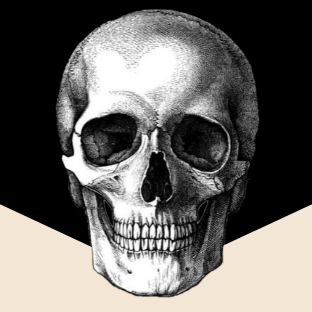PY: What inspired you to submit your essay, “The Pink Vase,” to Poor Yorick?
LS: When I saw your call for submissions, I thought my essay about deliberately “losing” something I had so diligently kept tabs on all these years would offer an interesting twist on the theme.
PY: In your essay, you speak of burying the actual pink vase. Though it is still buried, you felt the need to bring it back into the light. Was the story something you’ve been mulling over for a while?
LS: You could say I mulled over the story since I came into possession of the vase. I brought the pink vase back to life in my essay, in part because that’s what burying it represented for me—a decision to bury the guilt about my mother’s missed opportunities, and to bring my own writing fully into the light.
And of course, I had to allow myself time to be comfortable with the irony. My mother asked to be cremated, so she wouldn’t take up space in the Earth. I guess my dad didn’t want her ashes lying around, so he had the urn buried in a funeral plot, with a headstone. I don’t visit her grave, but I still know the spot where the pink vase is buried. I smile when I realize I’m near it. She ended up buried twice. I think my mother would get it. She had that weird sense of humor, like me.
PY: There is a line that stands out in your essay, “I lugged the pink vase around with me for a quarter of a century, packing and unpacking it with every move, my personal pink albatross… Recently, I decided it was time to end my relationship with the vase.” There is a sense of exasperation and then relief in your essay, a sense that you were carrying around a burden passed onto you from another generation. How can objects symbolize and help us gain insight into our relationships?
LS: I think we will always have strong feelings for the objects we have in our lives. We don’t just have relationships in our heads and hearts; we experience them with our bodies and our senses in the physical world. At the base of our skulls, we’re a primitive people, and we crave totems and relics. I look at my wedding ring, after 26 years of marriage to the man who designed it—another essay I need to write, involving a diamond inherited from my lesbian aunt, an ultimatum, and a Christmas surprise—and it symbolizes that commitment we made to each other with such wonderful innocence. I’ve also never wanted to upgrade the diamond or the setting—an appalling new tradition that, for me, upends the whole notion of the engagement/wedding ring as a memento. I don’t know if we could write interesting stories without the symbolism of stuff.
Interview by:
Jeannette Ronson
Associate Editor
